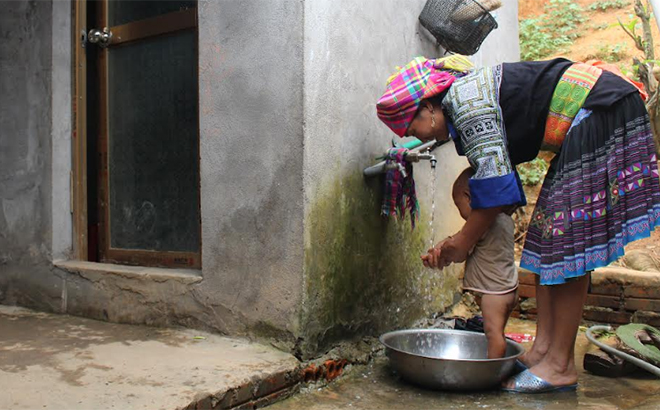WB-funded programme promotes hygiene perception and behaviour changes in Yen Bai
- Wednesday, October 6, 2021
YênBái - Changes have been seen in hygiene perception and behaviour of ethnic minority people in Yen Bai thanks to the four-year implementation of the WB-funded Results-based Scaling Up Rural Sanitation and Water Supply Programme.

|
|
H’mong ethnic minority people in Mu Cang Chai District have access to clean water.
|
Some 70 percent of the population in Muong Lai commune of Luc Yen district are ethnic minority people, making it difficult for the promotion of proper construction, use and maintenance of hygienic latrines, said Trieu Van Huan, Secretary of the commune’s Party Committee. Since the programme was launched, the commune has experienced positive changes.
Now, about 72.3 percent of local households have hygienic latrines, 93 percent have hand-washing facilities, and 100 percent of schools and medical stations have clean water supply facilities and toilets. Muong Lai was among 26 communes recognized for good sanitation last year, raising the number of recognized communes in Yen Bai to 50.
Assisting communes to satisfy the sanitary standards is among the objectives of the programme’s sanitation component. To achieve this goal, the Provincial Center for Disease Prevention and Control has organized many practical activities with new approaches. It has provided training for provincial and district officials on behaviour changing communications and given out nearly 50,000 propaganda leaflets and photos.
The programme has also identified potential stores in each commune to establish a supply chain network that supplies full packages of materials and equipment for the construction of clean latrines to the locals at affordable prices.
In 2020, the programme provided financial support for the construction of 1,915 household latrines; repair and renovation of 37 water supply and sanitation works for 32 medical stations, all of which have been put into use. This has helped raise the province’s rate of rural households with toilets to 72.5 percent and those with handwashing facilities to 77 percent. All public schools and 98.8 percent of medical stations now have hygienic water supply and latrine works.
This year, the programme will continue its intervention in 16 communes, aiming for more six communes recognized for good sanitation. It also plans to support the building and renovation of 1,860 household latrines to increase the percentage of rural families with hygiene latrines to 73 percent.